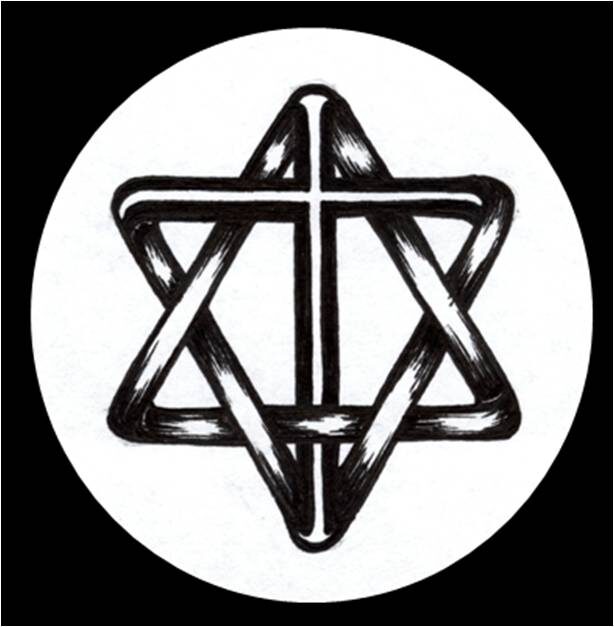We will now conclude considering that the idea that the Messiah is the LORD originates with Judaism and not with Christianity.
Let us now consider the text of the Dead See Scroll known as The Coming of Melchizedek – 11Q13 – Col.2:
(Ps. 82:1). Scripture also says about him; “Over it take your seat in the highest heaven; A divine being will judge the peoples” (Ps. 7:7-8) Concerning what scripture says; “How long will you judge unjustly, and show partiality with the wicked? Selah” (Ps. 82:2), the interpretation applies to Belial and the spirits predestined to him, because all of them have rebelled, turning from God’s precepts and so becoming utterly wicked. Therefore Melchizedek will thoroughly prosecute the vengeance required by God’s statutes. Also, he will deliver all the captives from the power of Belial, and from the power of all the spirits destined to him. Allied with him will be all the “righteous divine beings“(Isa. 61:3).
(The …) is that whi(ch …all) the divine beings. The visitation is the Day of Salvation that He has decreed through Isaiah the prophet concerning all the captives, inasmuch as Scripture says, “How beautiful upon the mountains are the feet of the messenger who announces peace, who brings good news, who announces salvation, who says to Zion “Your divine being reigns”.” (Isa. 52:7) This scriptures interpretation: “the mountains” are the prophets, they who were sent to proclaim God’s truth and to prophesy to all Israel. “The messengers” is the Anointed of the spirit, of whom Daniel spoke; “After the sixty-two weeks, an Anointed shall be cut off” (Dan. 9:26) The “messenger who brings good news, who announces Salvation” is the one of whom it is written; “to proclaim the year of the LORD`s favor, the day of the vengeance of our God; to comfort all who mourn” (Isa. 61:2)
This scripture’s interpretation: he is to instruct them about all the periods of history for eternity (… and in the statutes) of the truth. (…) (…. dominion) that passes from Belial and returns to the Sons of Light (….) (…) by the judgment of God, just as t is written concerning him; “who says to Zion “Your divine being reigns” (Isa. 52:7) “Zion” is the congregation of all the sons of righteousness, who uphold the covenant and turn from walking in the way of the people. “Your divine being” is Melchizedek, who will deliver them from the power of Belial. Concerning what scripture says, “Then you shall have the trumpet sounded loud; in the seventh month . . . ” (Lev. 25:9)
The Coming of Melchizedek applies Psalm 82:1 and 7:7-8 to the doings of Melchizedek. These texts read as follows:
So the congregation of the peoples shall surround You; For their sakes, therefore, return on high. The LORD [YHVW] shall judge the peoples; Judge me, O LORD [YHVW], according to my righteousness, And according to my integrity within me (Psalm 7:7-8).
God [elohim] standeth in the congregation of the mighty; he judgeth among the gods [elohim]. How long will ye judge unjustly, and accept the persons of the wicked? Selah (Psalm 82:1-2).

In Psalm 7:7-8 the LORD [YHVW] is identified as Melchizedek.
In Psalm 82:1 the elohim who judges the elohim, the one who reminds them that they are mere mortals is Melchizedek. See the essay Ha-Shem for an explanation of the term “elohim”; for example, Genesis 1:1 clearly describes the one and only God creating the universe and refers to this creator as elohim.
Next, The Coming of Melchizedek applies Isaiah 52:7 to Melchizedek’s doings,
How beautiful upon the mountains are the feet of him that bringeth good tidings, that publisheth peace; that bringeth good tidings of good, that publisheth salvation; that saith unto Zion, Thy God [elohim] reigneth!
Here, “Thy God [elohim]” who “reigneth” and to whom pertains the tidings of salvation, etc. is Melchizedek. The next 5 verses in Isaiah 52 place the reference to elohim into context by making reference to the LORD [YHVH].
Next is a reference to Daniel 9:26,
And after threescore and two weeks shall Messiah be cut off, but not for himself: and the people of the prince that shall come shall destroy the city and the sanctuary; and the end thereof [shall be] with a flood, and unto the end of the war desolations are determined.
Then Isaiah 61:2-3,
To proclaim the acceptable year of the LORD [YHVH], and the day of vengeance of our God [elohim]; to comfort all that mourn; To appoint unto them that mourn in Zion, to give unto them beauty for ashes, the oil of joy for mourning, the garment of praise for the spirit of heaviness; that they might be called trees of righteousness, the planting of the LORD [YHVH], that he might be glorified.
We find another instance of interpreting the LORD [YHVH] as being Melchizedek.
Finally, there is a reference to Leviticus 25:9,
Then shalt thou cause the trumpet of the jubilee to sound on the tenth [day] of the seventh month, in the day of atonement shall ye make the trumpet sound throughout all your land.
